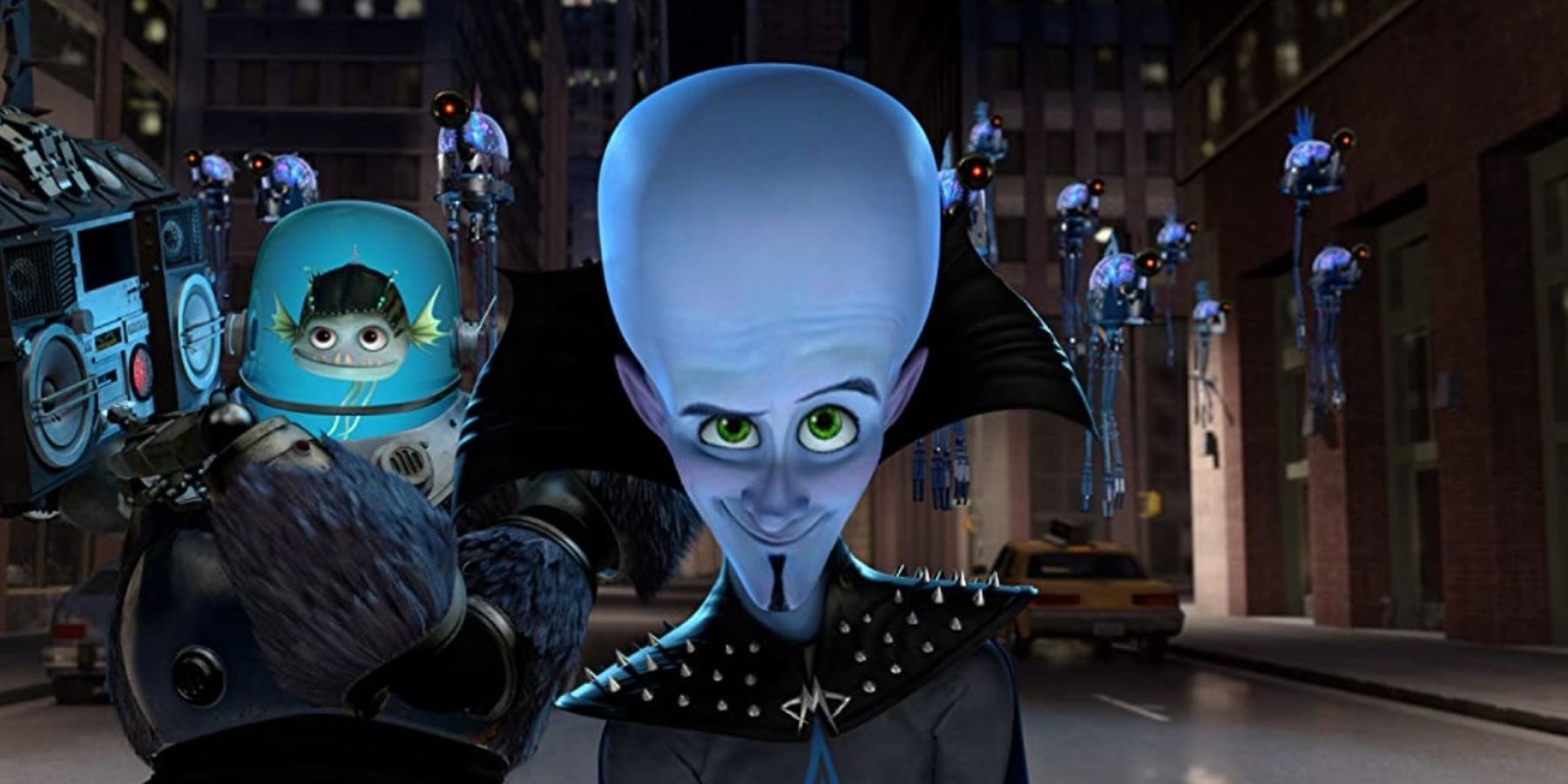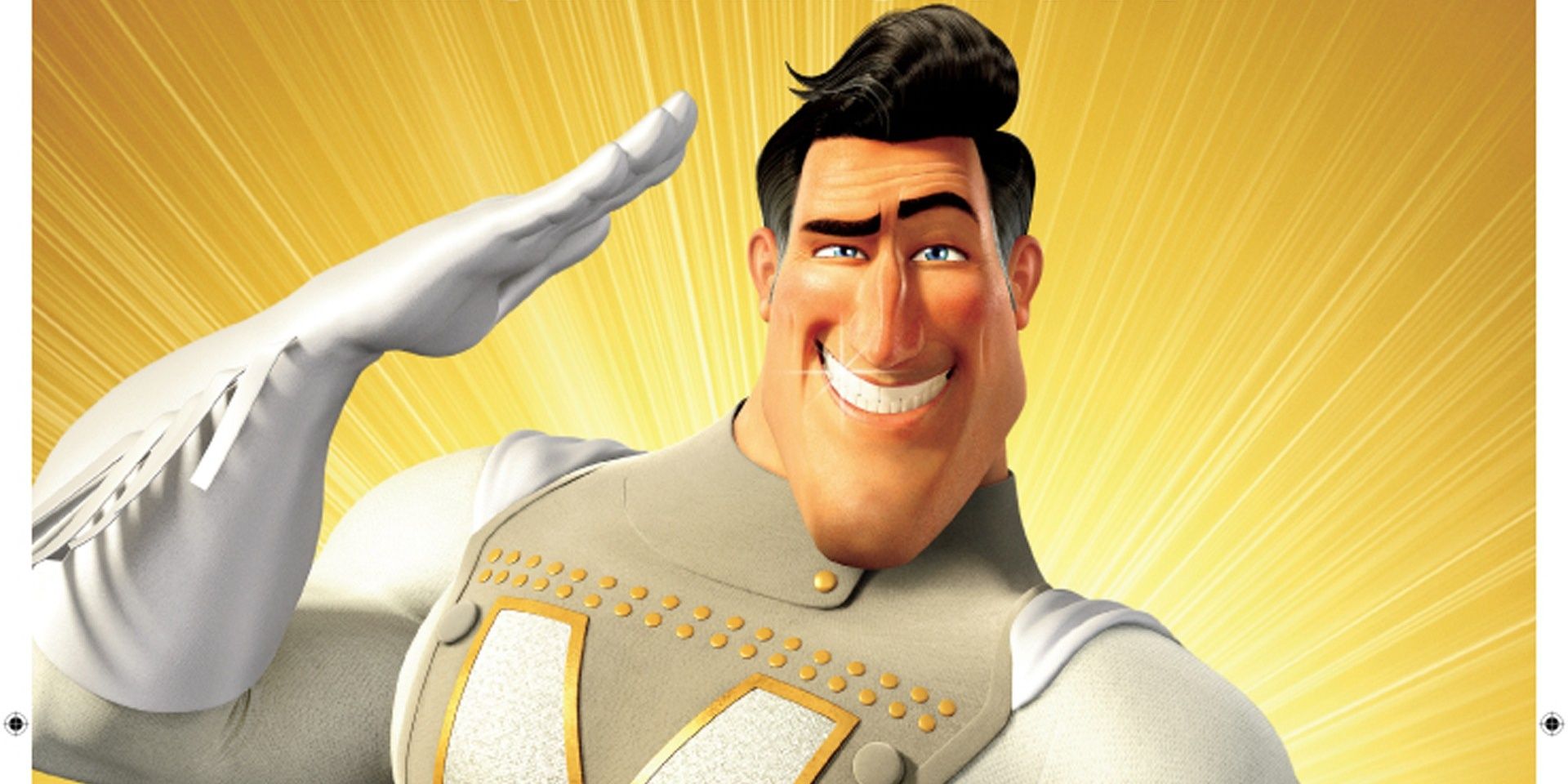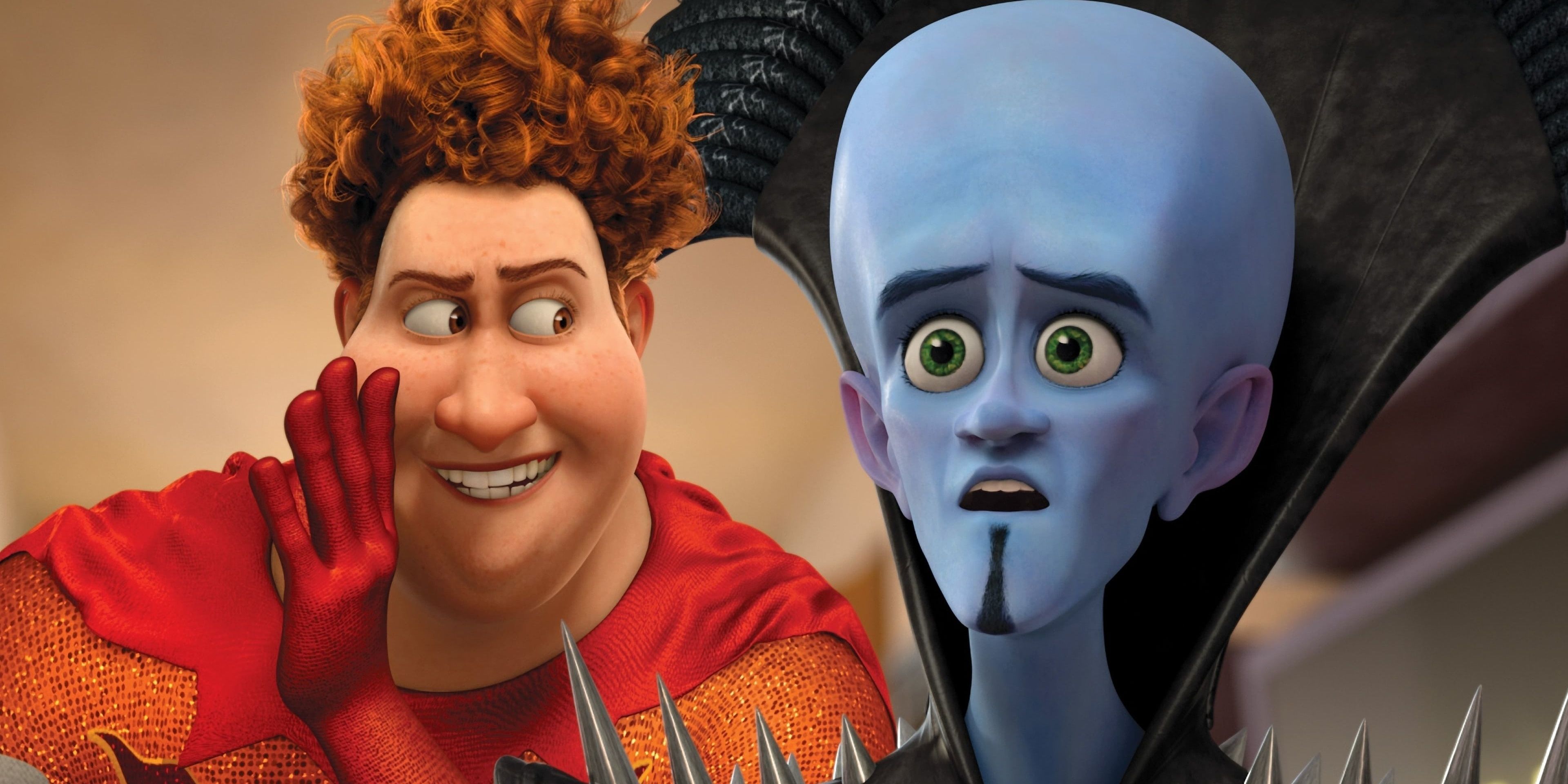Stories of good guys versus bad guys have been around for centuries. What was once folklore and myth are now comic books and movies. When you combine comics and movies you get the biggest franchises in the world with DC and Marvel Comics, which regularly make billions in the box office. With the popularity of the DCEU and MCU, there are bound to be those that want to flip the genre on its head and deconstruct the long-standing idea of what the good guy vs bad guy story is. Films and shows like The Boys and The Incredibles are widely popular and critically successful in their attempts at giving the genre a new look, but there is a film that deconstructs the current trend of superhero movies that isn't mentioned as much as it possibly should.
Dreamworks often tries to imitate films from Pixar: look at A Bug's Life compared to Antz and Finding Nemo versus Shark Tale. But no one of them works as well as Pixar's The Incredibles Dreamworks counterpart. Megamind is an exploration of what it means to be a good guy or a bad guy in a superhero film and what happens when one is missing the other. Comic books have a long-standing trope of having the hero be a noble strong man at the helm while the bad guy is an immensely smart alien or mutant that finds other ways of challenging the hero. Think Superman versus Brainiac or Captain America versus M.O.D.O.K. In the case of this film, Metroman is the good brawn and Megamind is the evil brain.
The film almost immediately subverts the genre when Megamind defeats Metroman, having the bad guy win not even half an hour into the movie. The feeling of seeing the villain win at all is supplemented by the reactions of the spectators in the movie who react as all fans would when a villain would win at all, simply in shock. The villains aren't allowed to win a lot of the time, especially within the first half an hour or the first issue of a comic book. The film explores what this would be like for the citizens of Metro City, but most importantly for Megamind himself as the villain who defeated his only adversary.
Megamind celebrates after beating Metroman but finds himself in depression after finding that he doesn't have a purpose anymore. There is no good without the bad, and there is no bad without the good. This doesn't happen very often in comic books as creators can just write a new villain for the hero, but Megamind isn't the hero. Villains don't get a rogue's gallery of heroes, it's the heroes that get the long list of constant villains like Spider-Man and Batman. But Megamind does what many comic book writers do anyway, he creates a new adversary himself. This time in the form of what is supposed to be a hero, Titan-the cameraman of Roxanne Ritchi who is later turned into a supervillain after he tries to get the girl like many superheroes do, but is rejected by Roxanne.
The film does a great job at describing and exploring what makes a great superhero in the sense of what audiences have gotten used to. When Roxanne-the Lois Lane of the movie gives Megamind the epiphany to make a superhero they list three aspects of what makes a superhero: bravery, strength, and determination. Essentially describing superman, who is the blueprint for many superheroes. Even the origins of Megamind and Metroman are identical to Superman, with their planets exploding when they are babies, having their parents ship them off to Earth in pods landing in destinations that will drastically alter who they will grow up to be in their origin stories, Megamind in a prison and Metroman with a very rich family. This is a sense of foreshadowing for what Megamind would become, the Superman of his story being the good he wants to be rather than the villain he was forced to be.
The film is disguised as a continuation in the story of the already established Metroman versus Megamind as this film's Superman versus Lex Luthor. But this film is an origin story for a new hero and villain. Megamind explains in the narration that he never truly wanted to be the villain, it was just the only thing he was good at. But because of the other characters and audiences' perceived notions of super villains, he is never allowed to be the good guy he wants to be, so he believes he is supposed to be the villain.
This comes back to something Roxanne later says in the movie, "heroes aren't born, they're made." The same can be said for villains. He was turned into the bad guy by others and when he creates a hero who turns into a villain for his lack of integrity, Megamind is then turned into the hero, now subverting the trope of brawn being heroic and brains being villainy.
The movie does so much that it doesn't get credit for. It knows the genre so perfectly and knows what makes it tick in the brains of audiences. It takes that and completely deconstructs almost every aspect of a centuries-old trope, making the film fresh and unique giving audiences a new look at what good and evil could be, hopefully allowing more flexibility in what creators do when constructing their own heroes.



